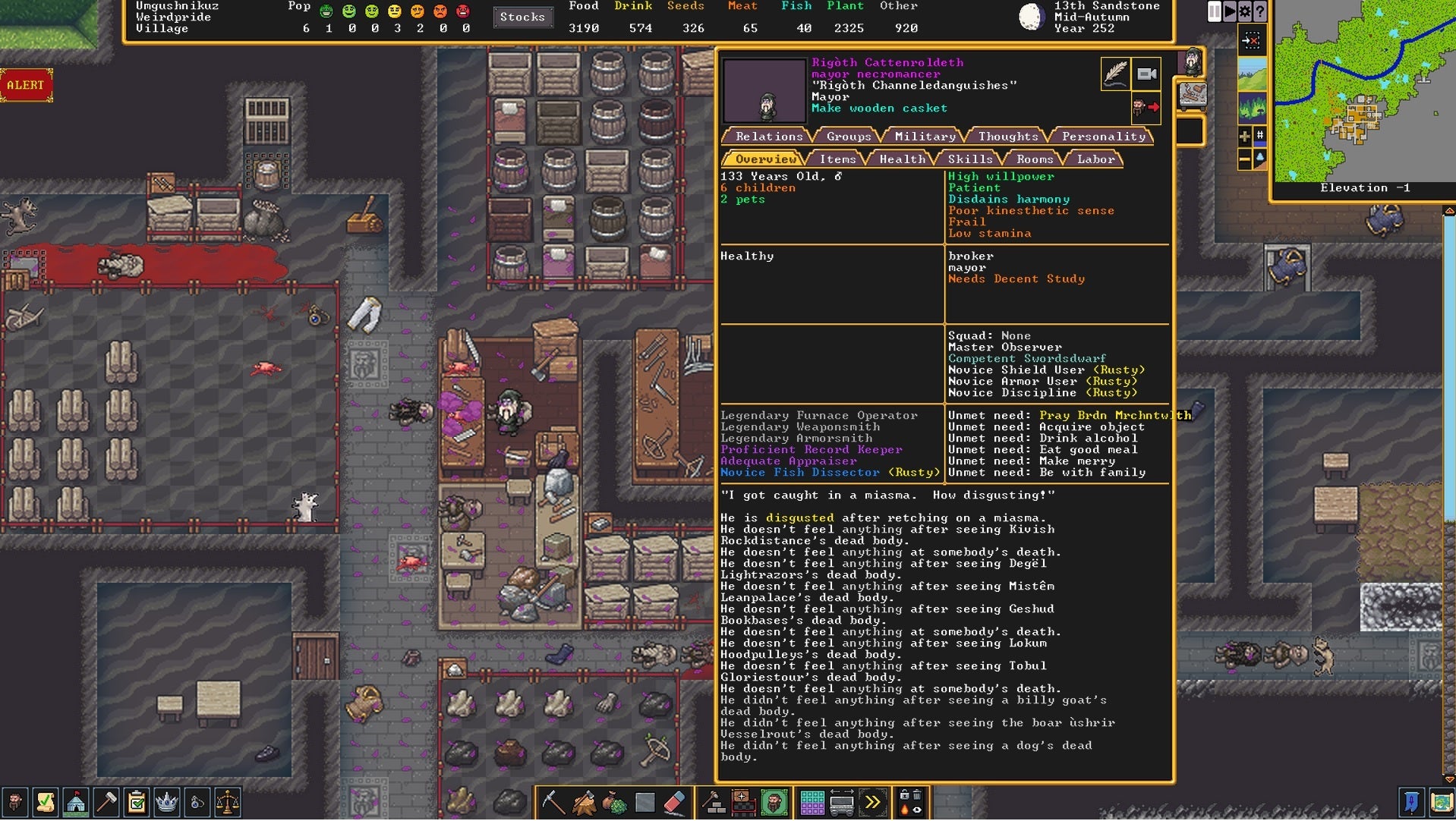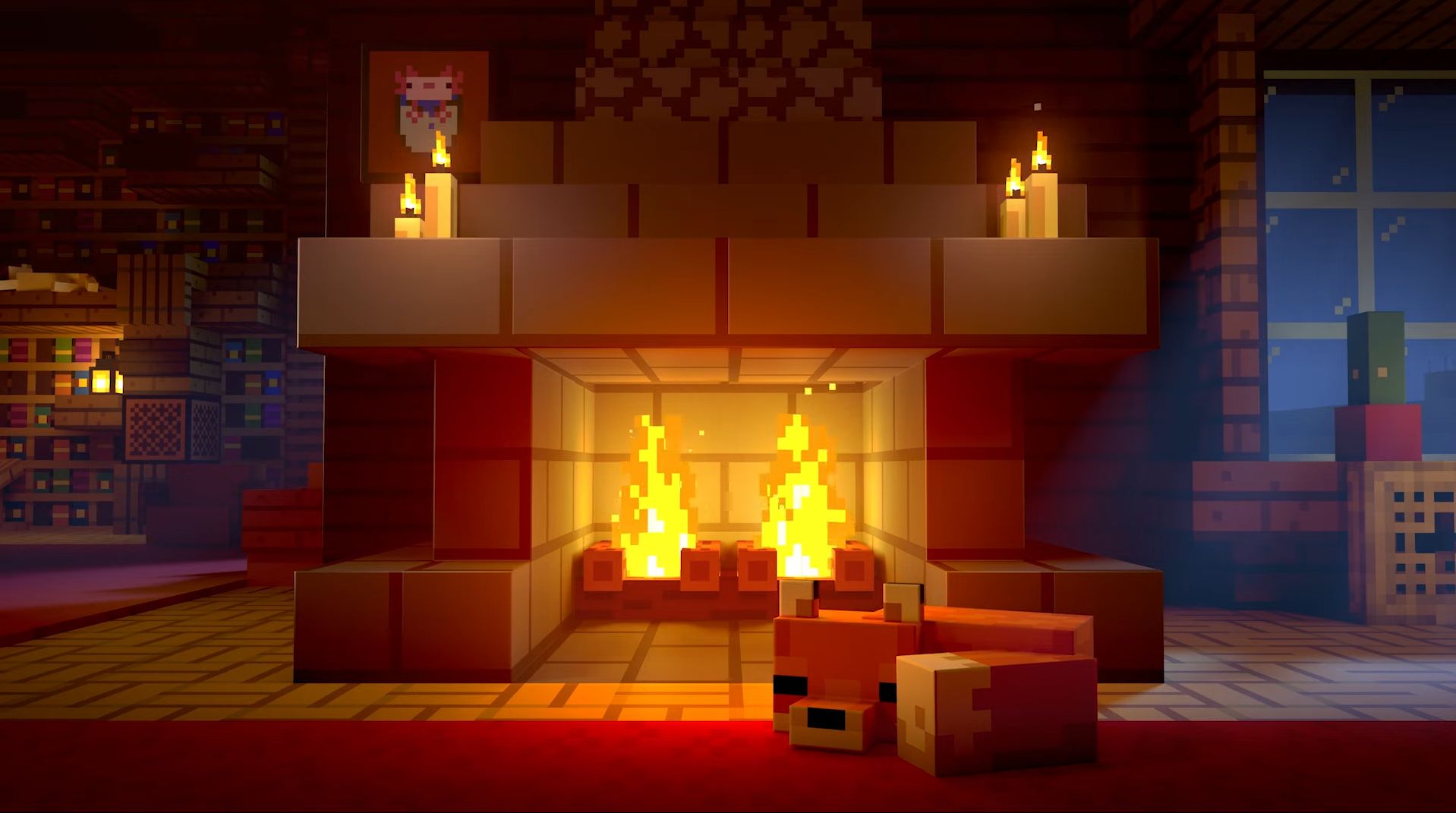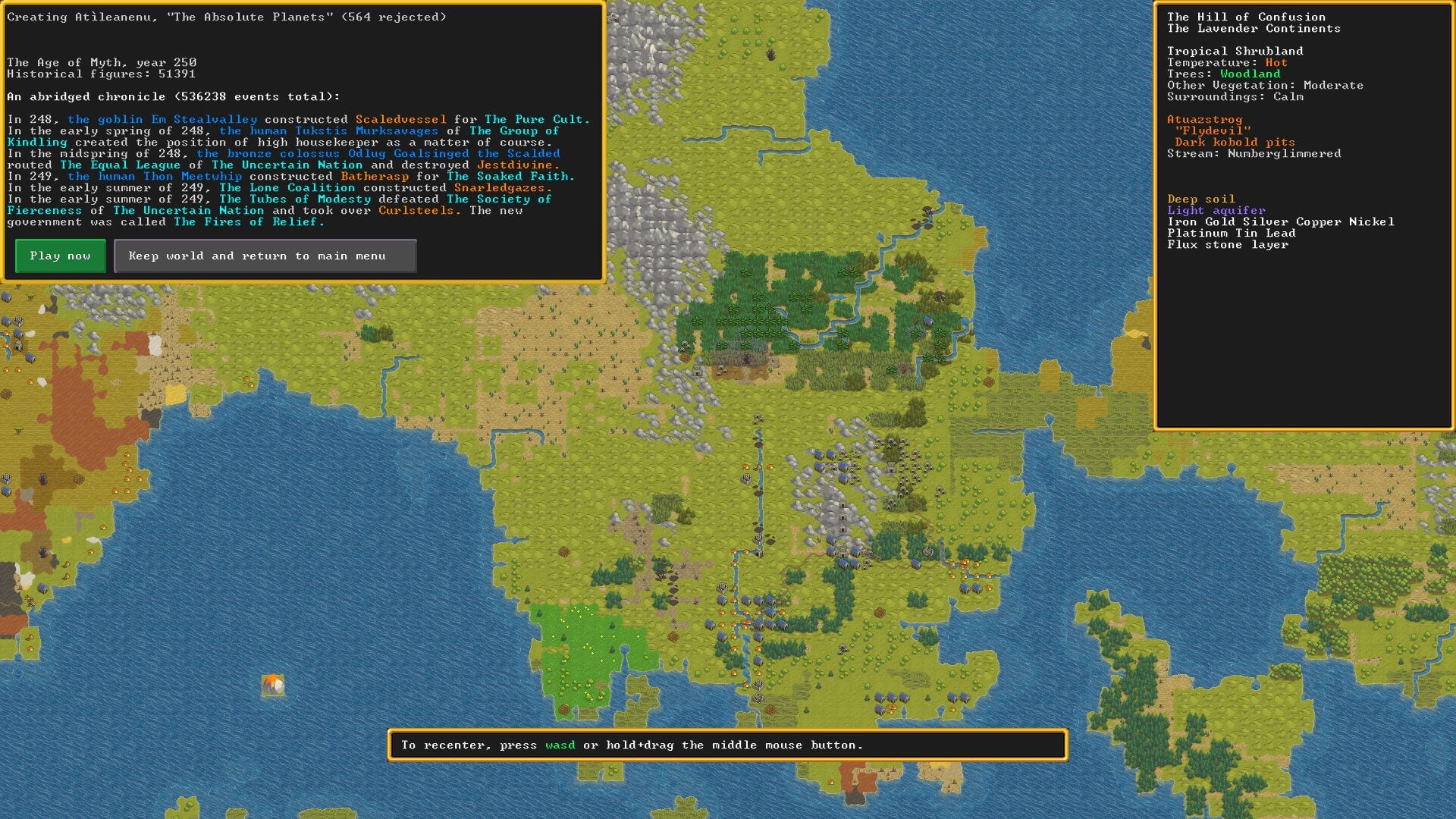Bay 12 Games have, of course, gone further than that, and released it for general sale on the biggest shop in the business after sixteen years as freeware. There’s even a charming new graphics overhaul to replace the famous ASCII symbols which, depending on who you ask, might not have technically counted as “graphics” at all. I’m not here to discuss the relative merits of this shiny new version and the “classic” version. Both will be updated in future, the latter still free, and neither expected to reach a full 1.0 release inside 20 years. All this chips around the edges of what I’ve been pondering, which is this: What exactly is Dwarf Fortress’s place within our culture now, after a decade replete with games that looked to it for ideas? I’ve moaned enough in the comments on RPS, about its torturous old interface and other gripes over the years, to qualify as a sometime hater. My big prediction for “Dwarf Fortress but playable” was that even a merely adequate interface would expose its other problems. It’s a game that frustrates me often, and even I consider it a strong contender for the most important game ever made. It’s certainly one of the most influential. Its students include Minecraft, the defining game of the century so far, and RimWorld, which has hovered within Steam’s 100 most played games for years, and spawned enough imitators of its own that I could name five offhand that even look exactly like it. Those two alone would qualify DF as important, but its indirect influence is incalculable. Not just the colony sim, but the roguelike era and arguably survival games owe part of their modern status to the mountainhome-lover’s concept of “losing is fun!”. A lot of those took that particular lesson way too far, but that’s one for another day. Even now-standard game culture like the diary and the Let’s Play were in part popularised by SomethingAwful’s infamous Boatmurdered (although by no means their only highlight - I’m sure I’ve stolen a line or two from Synthorange’s LP of Princess Maker 2). But the curse of a trailblazer is often to be outdone by those in your wake, and in some regards, Dwarf Fortress has been outdone. Most obviously, RimWorld’s vastly more limited simulation trades in complexity for a much smoother experience, and built in customisability even before considering mods. Its art, sound and animations imbue it with a mood and sense of easy relatability that DF sometimes lacks, while still being simple enough that there’s room for your imagination to fill in the details. Going Medieval’s strong start includes the Z levels, and, thanks to its 3D modeling, is even pretty with it. Odd Realm is a very pared down colony game with multiple playable species with their own quirks, and Songs of Syx encourages huge, complex settlements with far less arcane, esoteric, and plain broken behaviour from your residents. Prison Architect is a sort of sideways step into satire, and plays with the extreme degree of power you have over people in all these games. You could name any random colony sim and it would be easier to learn, and less of a mess than Dwarf Fortress, even with its new interface. On a basic level, most modern colony games that get beyond a beta are better games, because they take the template it established and focus on making that work. It’s also because most of it isn’t a game. That’s not a dig. I’m not being the jeb in the steam forum of every visual novel ever. I’m not even making a remotely original observation, but even with its new interface, it’s really a world generator that you can play games in. It’s a successor to what Maxis were pioneering in the early 90s with their Sim- series of games, which (long before devolving into a string of neoliberal carbrain sims) they called “software toys”. Simulator/game hybrids not meant to be won or completed, but played with. Games like SimEarth and SimLife in particular, in which you generate a (2D, of course) planet and its environment, then design and seed a planet with customised organisms and see how they all get on, with or without your meddling and a meteor strike or two when you get bored. Sounds familiar, right? It’s not just the subject matter though, it’s the spirit. More than anything, DF is an exploration of what games can do, not merely render. It’s also committed to being enjoyable, not some snobby grumbledad insisting that this is a simulator, not a game, because frivolity is beneath him. It is still entirely unique because of that. There are other extremely detailed simulations with decades-long development, like, say, Aurora, which is, ah, kind of dry. There’s Unreal World, an even older project that also jumped to steam in 2016, and boasts a far more novel setting and unique hunting systems. There’s even another absurdly detailed RPG with ASCII representation in Catacalysm: Dark Days Ahead, but neither of these has anywhere near the depth (which for the record is not an attack on them; they have other strengths). I don’t mean “depth” as in “lots of stuff”. DF’s fiddly and frustratingly opaque parts are sometimes mistaken for its depth, which truly lies in its conceptual foundations. It’s not just a simulator, content to draw some fruit in a bowl and leave it at that. It’s not just that it marries a complex simulation with an entertaining toy; it also fuses both with a long history of roleplaying games like Ultima, and their focus on personal stories, set in a world with its own narratives, histories, and mysterious secrets you can go out and research. Recent versions even have a partially-implemented system for giving individual creatures their own subjective interpretation of objective events. The joy of building a world in Minecraft is well known and well copied, but Dwarf Fortress is as much about exploring a unique world. Not one generated chunk by chunk, but truly simulated from its very creation for as long as your patience and hardware can hold out, changing based on what you do in your settlement or adventure, and what other entities are doing in the meantime. After a period of years without playing, you might speculate that it couldn’t possibly be that influential and still that unparalleled, but then I went and spoiled it all by playing the damn thing for weeks before the Steam release, and then again after it, and it still is. How? Because the things it’s been outdone at are the things it wasn’t really about. Going Medieval or RimWorld’s narrower focus gets you more involved with a cosy little settlement, sure, and micromanagement trumps the bigger picture, but their idea of difficulty is often random nonsense and bigger spawns. If you fight off 10 attackers, they’ll send 25 next time. In Dwarf Fortress, a civilisation can decline because it sent out too many raiders who didn’t come back. In its final version the game aims to track even wild animals to this degree. Where Minecraft generates a cool abandoned temple, in DF a dingo man might visit that temple and spend the rest of his life writing and distributing books about it, and discussions about it might help an elf resolve their personal traumas. And sure, 99% of that will sit in the background, never noticed from your perspective, but once in a while it will, and the more you look, the more connections you’ll find. It is a life simulator, and as such most of it goes utterly unrecognised. But it’s still happening even if you don’t see it. With each new version it becomes even more a game about life, about culture, and its creation and development, in addition to building dams and throwing goblins into the vampire pit. I still have many criticisms. It frustrates and it obfuscates, and it falls prey to a kind of simulationist uncanny valley, in which the more it does, the more glaring its omissions feel. Its new interface is still merely tolerable, with several problems and annoyances, and even removes some vital features from the classic version. But its huge success on Steam is about more than indulging in some shared memes, and more than its creators getting one of the most deserved payouts in game history. Not that everyone can (for the love of god, don’t try to take general industry lessons from its utterly singular nature and circumstances) but that this unlikely behemoth that quietly shaped the industry for the last 15 years can not only keep doing so, but reach and inspire even more people. There may be a thousand failed projects that deserved no less success, but that’s not a mark against it. It’s the one that beat the odds by being weird, and it isn’t just that it’s a mad auteurial experiment. What’s wonderful is that it’s been such a huge success on Steam even in a form two decades short of final because it’s been embraced. Now more than ever it’s an influential design, a cultural touchstone, and a philosophical inspiration. Not just selling a lot of copies but engendering its own bizarre culture and language, and one that’s remarkably lighthearted and positive despite all the talk of catskin boots and berserker children. People will tell you there’s a proper way to build a fortress, but not really mean it. It’s just play. It hits all the beats that matter, and now it’s at least halfway accessible I can’t see its status ever seriously diminishing. I’ll probably complain about its limitations and bugs for the rest of my life, but even dusted with mud, tattered socks, and lizard remains, Dwarf Fortress is a beacon for what games could be.


